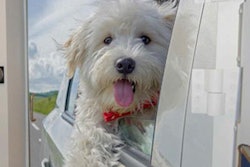In a subset of patients, radiosurgery may be the best choice for those with lung cancer who have four or more brain lesions, according to a study published December 18 in the Journal of Thoracic Oncology.
Researchers from the University of Colorado Cancer Center compared the use of radiosurgery with whole-brain radiotherapy to determine how radiosurgery stacks up. The study focused on patients with advanced anaplastic lymphoma kinase (ALK)-mutated or epidermal growth factor receptor (EGFR)-mutated non-small cell lung cancer.
In addition to determining radiosurgery's effectiveness in individuals with four or more brain lesions, the researchers found no difference in survival for patients treated for four to 10 metastases versus those treated for more than 10 metastases. They also found no difference in survival for patients treated with multiple courses of radiotherapy, no matter the number of lesions treated, including 47 for one patient.
"Whole-brain radiation therapy decreases the risk of death from neurologic causes, but at a steep cost. This study suggests that for lung cancer patients on targeted therapies whose cancer has spread to the brain, the use of radiosurgery makes it rare to die of causes related to brain metastases," said Dr. Tyler Robin, PhD, a senior resident in radiation oncology at the university and the paper's first author.
The researchers also found that the dose to the whole brain using radiosurgery was lower than with whole-brain radiotherapy -- whole-brain radiation delivers a radiation dose of approximately 30 Gy to the entire brain. The maximum radiation dose experienced with radiosurgery, even with many metastases, was 1.2 Gy in the hippocampus and 0.8 Gy across the whole brain.



















